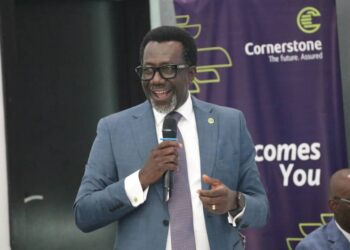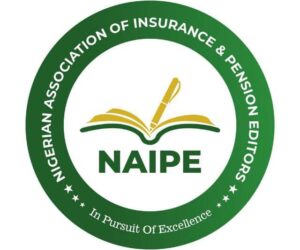The National Insurance Commission has stepped into the aviation insurance arena to douse misconception about aviation insurance capacity in the local market and set in right perspective how the absolute international underwriting of aviation insurance works.
The Commissioner for Insurance, Olusegun Ayo Omosehin who presented a speech at the 4th Chinet Aviacargo Conference 2024 on “The Role of Insurance in Aviation Business” in Lagos today, explained that apart from the undisputed fact that aviation insurance is international and placed through reinsurance, aviation pools and mechanisms in developed market with the Lloyds of London as the anchor. He said its on the strength of this that risks insured in country ABC will find itself in many continents of the world by way of underwriting and placements.
Notwithstanding the international nature of aviation business and insurance operations, professionals in the country where the subject matter of insurance is situated cannot be ignored in profiling the risk. Therefore, he said Nigerian insurance companies are involved ultimately fostering a commensurable risk control decision. He braces this with the regulator stamp of involvement, “The capacity of aviation insurance in Nigeria is regulated by the National Insurance Commission (NAICOM). The Commission which is the agency of the Government that is responsible for maintaining stability, safety and financial soundness of insurance operators in the sector, thus closely monitors the placement of aviation risks in Nigeria.”
Omosehin further explained that; “the supervision of aviation insurance placements has in no doubt increased over the years, especially on very high risks that may warrant placement of a portion of the risk offshore by way of reinsurance support. In view of this, the Lead Underwriter or placement Broker is expected to seek the National Insurance Commission’s “Approval in Principle” to place the excess of the available Local Capacity offshore. In this instance the regulator (NAICOM) is privileged to see the entire process from provisional stage of product packaging to the actual consummation of the contract and placements.” The local capacity policy is created by an Act to develop the local market, making it the primary source in the process of the placement that traditionally would end in the Lloyds being the holding risk bearer for large chunks of international aviation risks.

In addition, NAICOM through its prudential regulations had specified minimum prudential standards for underwriting, reinsurance, investments, reserving, and outsourcing.
The prudential guidelines the CFI explained also deals with aviation insurance and returns, with the ultimate intention of protecting consumers and stakeholders in the industry, ensuring a safe and stable insurance industry, as well as boosting confidence in the sector.
He listed some of the prescribed minimum prudential standards that guides activities in aviation underwriting in Nigeria includes but not limited to the general requirements require that all aviation insurance business shall be conducted in accordance with extant insurance laws and other relevant
regulations.
He also emphasised the need to ensure that establishment of underwriting terms and conditions for any aviation and its associated risks in Nigeria are the responsibility of an insurer duly licensed to transact insurance business in Nigeria. This is without prejudice to an insurer’s need to seek expert advice from its reinsurers for appropriate risk rating/pricing.
Still on the care taken to protect aviation risks, Omosehin said all underwriting firms are required to ensure that all aviation insurance transactions are conducted in compliance with Contract Certainty principles and requirements; amongst which all aviation insurance liability policies for any Nigeria domiciled risk are to conform to the minimum Passenger Liability Limit as required by the Nigerian Civil Aviation Authority.
On the responsibility of the underwriters prior to engaging the risk he said every insurer and/or coinsurer shall, prior to accepting, signing and/or stamping any Aviation Insurance policy/schedule of coinsurers, carry out Risk Measurement and Exposure Assessment vis-a-viz its available capacity.
He therefore appealed to all stakeholders in the aviation sector to see the bigger picture of growing linked industries beyond the immediate individual gains, but rather, collectively growing an economy that is sustainable and self-reliance to absorb shocks.
Putting the cap on the role of insurance NAICOM CEO said insurance place in the system should therefore, be seen beyond just financial protection, to one that is a very critical part of the economy. The entire insurance value-chain is intended to enhance efficient allocation of resources in market-oriented economies everywhere.
Pushing it more he stated that specifically, it is noteworthy that insurance companies facilitate investment in infrastructure and high-risk/return activities, by generating sources of long-term finance, manage high-risk exposures as well as help stimulate the growth of debt and equity markets.
Speaking as a regulator of a market that exists for the sustenance of all players in the economy he said as a regulator in the financial services sector, our role is to ensure stability of the financial system, improve soundness of our operators in the insurance sector and safeguard policyholders’ interest. We are committed to giving adequate support to operators in the insurance sector and confidence to operators in the aviation industry in our effort to promote economic growth and development of our nation, Nigeria.








































